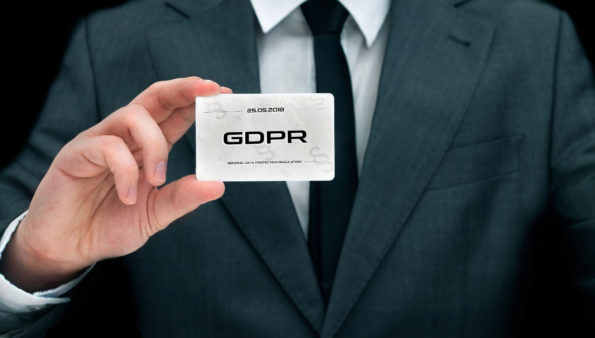Today’s tighter data protection and privacy regulations present serious challenges for organizations. Noncompliance and violations mean major penalties from the data governance organizations that create the standards. Just last year, companies faced €170 million in fines for violations of General Data Protection Regulation (GDPR). And, in the third quarter alone for 2021, GDPR issued over €984 million in fines.
These high-priced fines reflect the extensive requirements that companies must follow and that industry and government organizations, like GDPR, check for. To keep their data protection requirements in check, organizations are turning to data protection officers (DPOs) to lead the way. In fact, Gartner estimates over 1 million organizations will hire a DPO by the end of 2022.
In this post, we delineate what a data protection officer is and why you need one. Then, we guide you through the key roles that a DPO plays in helping you comply with data protection regulations. Let’s get started.
What is a data protection officer?
 A data protection officer plans, sets up, and enforces frameworks to protect data, safeguarding sensitive information and making specific data available according to organizational requirements. In doing so, the DPO helps maintain business continuity while managing disaster recovery—a key aspect of today’s protection laws.
A data protection officer plans, sets up, and enforces frameworks to protect data, safeguarding sensitive information and making specific data available according to organizational requirements. In doing so, the DPO helps maintain business continuity while managing disaster recovery—a key aspect of today’s protection laws.
Another role of the DPO is creating a cross-department collaboration for information sharing and processing. To ensure that everyone follows standard security and data protection practices, the DPO implements training processes and monitoring of the company’s security posture.
As a security authority, the DPO is responsible for achieving sustainable compliance, especially for companies that collect and process large amounts of data. They pay close attention to how the company handles sensitive data, such as names, addresses, phone numbers, credit card details, activity history, and other information hackers target.
Whether you promote a current employee to serve as your DPO, hire a DPO on your own, or outsource one, the person you choose must be highly qualified with these characteristics:
- A strong cybersecurity background
- Audit experience
- Good leadership skills
While the DPO has several responsibilities in protecting your organization’s data, keep in mind that you can’t hold them responsible if a security breach or data leak occurs. Besides, data breaches are the result of hackers finding a vulnerability that may have been created from a multitude of factors.
Why do you need a data protection officer
 Software-as-a-service (SaaS) vendors, healthcare companies, AdTech businesses, and data mining software providers process millions of personal records and payment information each day. In particular, companies that operate in the EU and US need a data protection officer to keep all data safe.
Software-as-a-service (SaaS) vendors, healthcare companies, AdTech businesses, and data mining software providers process millions of personal records and payment information each day. In particular, companies that operate in the EU and US need a data protection officer to keep all data safe.
To keep up with compliance requirements, companies need data privacy and protection solutions that go well beyond implementing security tools and monitoring traffic. They need a DPO who can take in the big picture view of the entire data ecosystem, map data flows, and break down the data protection specifications that apply to them. They also need a DPO who can help them stay compliant with data privacy and protection laws and their updates, as well as pass all audits without any hiccups.
Although the Chief Information Security Officer (CISO) is essential to overseeing the entire security strategy, they need a DPO to focus specifically on the organizational data and how to protect it. They need the DPO to work with third-party data processors who access their data so they can understand the implications of these dependencies.
Responsibilities of the data protection officer
Now that you understand the role of the data protection officer and why you need one, consider the key areas you need your DPO to focus on. To stay on top of data protection compliance, keep in mind the following responsibilities.
1. Uphold data protection laws and practices
Your DPO must have a sound understanding of the data protection laws that apply to your data and your organization. They must also be able to interpret them, carry out the latest requirements, and implement best practices.
Make sure your DPO can break down infrastructure changes and understand the IT processes to align your company with the required privacy laws. They must regularly document any security and privacy gaps and nullify requirements that no longer apply.
2. Monitor compliance
Your DPO must always keep your organization accountable for its data. Therefore, as you create and implement internal policies, your DPO must be able to monitor data flows and information storage to achieve sustainable compliance. In addition, they must create a strategy to notify third parties and remote workers about sharing and processing sensitive data.
By leveraging monitoring solutions, your DPO should create a privacy governance ecosystem that eliminates all blind spots or vulnerabilities. As part of this infrastructure, your DPO should also store compliance-related data, such as consent and user activity.
3. Support business operations and data handling
As you scale your business operations, your DPO must understand and prepare for any data challenges in keeping up with your company’s growth. They must have a firm grasp of your industry and associated risks in collaborating with external entities. Your DPO must also draft and review the data protection requirements for all commercial agreements.
4. Notify teams and authorities of data breaches
No organization is immune to cybercrime. With hackers constantly finding new techniques to breach websites and databases, your DPO must be prepared for the worst-case scenario—data theft. Each data protection standard comes with its own set of rules for handling a data breach, so your DPO must know which protocols to follow. For example, GDPR requires DPOs to notify the authorities and update customers within 72 hours of breach discovery. Therefore, your DPO must create a sound strategy and disaster response plan.
When data theft has occurred, the DPO plays an active role in containing the incident. This process alone often takes security teams days or weeks to pinpoint the problem and prevent further unauthorized access.
5. Foster a security-aware culture
One of the most important responsibilities of the DPO is creating a security-aware culture across the organization. This culture begins with implementing cybersecurity training and data privacy educational programs for all employees, regardless of their role in the organization.
As new employees, freelancers, and contractors join your organization, traditional one-and-done training sessions that happen once a year don’t work. The DPO must ensure that every employee takes a proactive role in protecting your company’s data and ensuring its privacy and security.
To establish an effective security-aware culture, the DPO must implement a customizable awareness training solution. Such solutions backed by machine learning and data analytics, enable your DPO to identify high-risk employees and gauge behavioral change across the organization.
Start your data protection officer on the right foot
 Data protection officers play a key role in helping your organization comply with data protection and privacy standards. In this post, you learned what a DPO does, why your organization needs one, and the key responsibilities they need to focus on.
Data protection officers play a key role in helping your organization comply with data protection and privacy standards. In this post, you learned what a DPO does, why your organization needs one, and the key responsibilities they need to focus on.
Like CISOs and security teams, DPOs cannot achieve success without proper security protocols and data protection practices. They also require each employee to commit to supporting a cybersecurity awareness culture. This culture starts by providing engaging, bite-sized cybersecurity awareness training right in the workflow. From phishing to compliance audits, cybersecurity awareness training prepares your DPO—and your employees—for greater data protection compliance and a stronger defense against the next breach.













